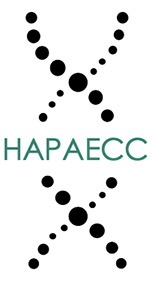
Joint hypermobility and related disorders :
studies in emotion, cognition and behavior.
Home | Team | Studies | News | Publications | Support us | Partners
APSAOR Study – Adaptation to Illness and Psychosocial Needs of Individuals with Hereditary Aortopathies: A Mixed-Methods Study
Context:
Vascular Ehlers-Danlos Syndrome (vEDS), Marfan Syndrome (MFS), and Loeys-Dietz Syndrome (LDS) are rare genetic disorders in which connective tissue abnormalities lead to severe vascular complications, including aortic aneurysms and dissections. These potential arterial events significantly increase the risk of premature death. Studies describing patients with these hereditary aortopathies (HA) from a psychosocial perspective are almost nonexistent. As a result, the impact of these diseases on the daily lives of affected individuals, as well as their psychosocial needs, remains poorly understood.
Objectives:
- To explore psychosocial adjustment to illness in individuals with HA (vEDS, LDS, and MFS) and compare it across conditions.
- To examine sociodemographic (age, sex, marital status, years of education, employment status), clinical (fatigue, pain, arterial events, family history of HA, comorbidities, physical functioning), and psychosocial factors (coping strategies, illness beliefs, anxiety, depression) associated with patients’ adaptation to their illness.
- To explore, through semi-structured interviews, the subjective experience and personal meaning of the illness, as well as the perceived psychosocial needs of individuals affected by these HAs.
Method:
APSAOR is a cross-sectional, observational, mixed-methods study. It includes patients aged 18 or older with a confirmed molecular diagnosis of vEDS, LDS, or MFS, followed at the Pompidou and Bichat Hospitals in Paris. In the first phase (quantitative part), participants will complete a series of online self-report questionnaires and undergo the MINI (Mini International Neuropsychiatric Interview, DSM-5). In the second phase (qualitative part), a subgroup of patients will take part in an in-depth interview to explore their subjective experience of the illness and their needs.
Researchers: Carolina Baeza-Velasco (PI), Camille Ribreau (PhD student), Tristan Mirault, Xavier Jeunemaitre, Guillaume Jondeau, Leonor Fasse, Caroline Varay.
Affiliated Institutions: LPPS Laboratory, Université Paris Cité; Rare Disease Reference Center, Georges-Pompidou European Hospital; National Reference Center for Marfan Syndrome and Related Disorders, Bichat-Claude Bernard Hospital. Patient associations: VEDS France, UNSED, AFSED, and MARFANS.
Funding: Fondation Maladies Rares, Fondation de France, BRIO UPC.

